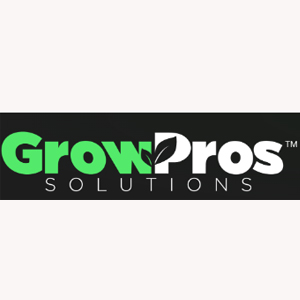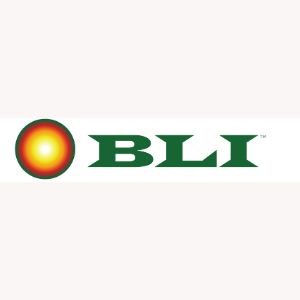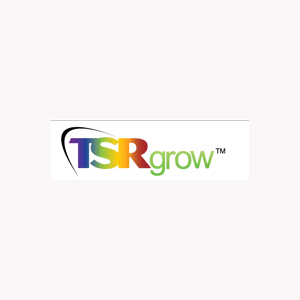\\\\ Top Cannabis Lighting Companies \\\\
\\\\\\\\\ Top Cannabis Lighting Companies \\\\\\\\\
-
Grow Pros Solutions
GrowPros Solutions is a grower-owned manufacturer of high-performance LED grow lights engineered for cannabis cultivation. With 25+ years of hands-on experience and in-house manufacturing, it delivers innovative, affordable lighting solutions, most notably under-canopy lighting, helping growers maximize yield, efficiency and ROI.
-
Boulderlamp
Boulderlamp combines expertise in physics and electrical engineering. It designs specialized lighting to support individuals with autism and assist the elderly. The company leads in sustainable agriculture, developing and manufacturing advanced Ceramic Metal Halide (CMH) and LED horticultural lights. It also features antimicrobial technology designed to optimize crop cultivation and increase yields.
-
Fluence
Fluence specializes in LED lighting solutions for cannabis cultivation. With decades of horticultural experience and advanced photobiology research, it develops products such as the SPYDR 3 and VYPR Series. Fluence's mission is to provide efficient, sustainable and science-driven lighting that helps commercial growers increase yields and enhance crop quality.
-
Fohse
As an expert in horticultural science and engineering, Fohse manufactures high-performance LED grow lights. It provides advanced, energy-efficient, and sustainable lighting solutions for both commercial and home-grown plants. Its products are designed to boost productivity to ensure healthier plants and higher yields. Fohse also provides cultivation consultations to help customers maximize their results.
-
TSRgrow
TSRgrow offers comprehensive solutions for commercial cultivation, specializing in LED lighting and remote power systems. The company's TOTALgrow Solution approach incorporates wireless sensors, data monitoring and expert consulting to assist cultivators in building and operating efficient facilities. With a strong emphasis on sustainability and energy rebates, TSRgrow serves as a strategic partner for long-term success.
More in News
Cannabis Supply Chain Strategy for the Modern Market
Tuesday, February 03, 2026
Fremont, CA: In recent years, the cannabis industry has witnessed exponential growth, emerging from the shadows of prohibition to become a legitimate powerhouse in the global market. However, this rapid expansion also brings forth a unique set of challenges, particularly in establishing a resilient supply chain capable of withstanding fluctuations in demand, regulatory pressures, and operational risks. As the landscape continues to evolve, stakeholders must harness the power of technology, adhere to stringent compliance measures, and adopt innovative cultivation enhancements to build a robust supply chain. Leveraging Smart Packaging and Cultivation Innovation to Strengthen Cannabis Supply Chains In the cannabis industry, packaging has evolved into a vital instrument for both brand protection and regulatory compliance. Smart packaging technologies—such as QR codes and RFID tags—not only enhance transparency and product authenticity but also streamline adherence to complex regulatory requirements. QR codes enable consumers to access detailed information, including lab results, certificates of analysis, product specifications, dosage guidelines, and brand narratives, thereby fostering trust and empowering informed decision-making. Meanwhile, RFID technology enables real-time product tracking throughout the supply chain, ensuring compliance, optimizing logistics, and minimizing risks associated with loss or theft. Additionally, intelligent packaging plays a crucial role in maintaining product quality, potency, and shelf life, ultimately safeguarding the brand's integrity. Complementing these technological advancements, under-canopy lighting has emerged as a high-impact, low-effort innovation in indoor and vertical cannabis cultivation. By targeting the lower leaves and bud sites, this technique enhances light penetration, resulting in increased yields, improved plant health, and enhanced pest control. It also contributes to labor efficiency by reducing the need for manual defoliation. While successful implementation requires precise environmental management, under-canopy lighting offers a significant return on investment for growers seeking to boost productivity and quality with minimal disruption to existing operations. Strategic Risk Management as a Backbone for Long-Term Viability At the core of a practical risk management framework is regulatory compliance. This involves the continuous monitoring of state and federal regulations, the implementation of robust seed-to-sale tracking systems, recordkeeping, and strict adherence to packaging, labeling, and testing standards. Both internal and external audits play a critical role in identifying and closing compliance gaps before they escalate into serious issues. Diversification and contingency planning are equally essential. Overreliance on a single supplier or distribution channel exposes the supply chain to significant vulnerabilities. By diversifying suppliers, cultivators, and revenue streams, businesses can better withstand disruptions caused by factors such as crop failure, logistical challenges, or region-specific regulatory changes. Well-defined contingency plans for scenarios like product recalls, equipment failures, or natural disasters ensure operational continuity. Equally important is the integration of data-driven decision-making processes and the seamless flow of information. Deploying ERP systems that connect operations from cultivation through to compliance offers real-time visibility and supports accurate demand forecasting and resource planning. Clear communication channels and standardized operating procedures (SOPs) across all stakeholders—from growers to distributors and retailers—further enhance coordination and responsiveness. Cannabis businesses can move beyond simply reacting to challenges and instead build a proactive, adaptable, and ultimately resilient supply chain capable of navigating the industry for long-term success. The integration of technology, a steadfast commitment to compliance, and continuous innovation in cultivation are not merely options but necessities for thriving in this competitive and complex market.
The Role of Innovation in Advancing Cannabis Technology
Tuesday, February 03, 2026
Fremont, CA: The cannabis industry is on the brink of a technological revolution. Innovations in cannabis technology transform cultivation efficiency, purify products, and enhance sustainability within the sector. Precision Agriculture Precision agriculture is perhaps the most significant trend in cannabis technology. More accurate environmental conditions, in terms of humidity, temperature, and nutrient levels, are determined using real-time data from smart sensors. This ensures that optimum growth conditions are maintained, which results in higher yields and better-quality cannabis. Precision agriculture increases efficiency while at the same time fostering sustainability by avoiding the waste of all resources. AI-Driven Production In the cannabis sector, artificial intelligence (AI) is causing a stir. AI-powered systems may analyze large volumes of data to maximize every facet of cannabis production. From predicting the best harvest times to automating quality control, AI is set to revolutionize how cannabis is grown and processed. This technology allows for more consistent and high-quality products, meeting the growing demand for premium cannabis. Advanced Extraction Methods The second interesting development is in the evolution of cannabis extraction technology. There is an upsurge in new, solvent-free extraction methods. Solvent-free extraction methods enable pure and powerful cannabis products without the hassle of chemicals. More advanced efficiency-gaining machines also enhance efficiency in producing cleaner, rarer, refined products. This is driven by consumer demand for quality and safe products. Sustainability Practice The cannabis industry will need to focus more on sustainability in the future. Cultivation technology innovations, including LED lighting and renewable energy solutions, are reducing the environmental impact of cannabis farming. These practices lower energy consumption while making the industry more sustainable. With increasing environmental consciousness among consumers, adopting sustainable practices will be crucial for the industry's growth. Personalized Cannabis Products The trend for personalized cannabis products is on the rise. Through AI, companies can create custom products tailored to individual needs. Whether it's a specific THC/CBD ratio or particular terpenes for desired effects, personalized cannabis products are becoming more accessible. This customization enhances the consumer experience by offering products tailored to specific preferences and health requirements. Changes in Marketing and Branding With the maturity of the cannabis market, marketing and branding strategies have evolved. The onus of education and responsible consumption is now upon the brands. Businesses are now leaving behind the flashy, unregulated ads and shifting to informative campaigns. In this respect, advanced compliance software also supports the changing landscape, aiding businesses in complying with regulations that are now in place. Additionally, the brands emphasize educating the consumer on the advantages and responsible use of cannabis.
How AI Is Improving Yields and Sales in the Cannabis Industry
Tuesday, February 03, 2026
FREMONT CA: The integration of artificial intelligence (AI) into cannabis cultivation and retail is transforming the industry by enabling smarter and more efficient operations. As legal cannabis markets continue to expand globally, producers and retailers face increasing pressure to optimize yields, enhance product quality, and improve overall efficiency. AI technologies, including machine learning and advanced data analytics, are being utilized to monitor environmental variables, automate cultivation workflows, and forecast consumer demand. This shift enhances resource management, reduces operational costs, and supports regulatory compliance in a growing and highly regulated industry. The Role of AI in Cannabis Cultivation Cannabis cultivation involves complex processes that necessitate precise control over various environmental factors. Monitoring conditions such as temperature, humidity, light, and nutrient levels requires meticulous attention. AI technology is increasingly used to streamline these tasks, saving growers time and enhancing accuracy. AI-powered systems continuously monitor and adjust environmental parameters in real-time, ensuring optimal growing conditions. Additionally, AI analyses plant health by processing data from various sensors, enabling the early detection of issues like disease or nutrient deficiencies. This proactive approach allows growers to respond quickly, minimising potential crop losses. Furthermore, AI-driven cameras are vital in monitoring plant growth and predicting yields with greater accuracy. By leveraging this data, growers can optimise their cultivation processes, increasing yields and conserving resources. Automated systems are also being integrated to manage labour-intensive tasks such as watering, feeding, and trimming, potentially reducing the reliance on manual labour. Predicting and Preventing Problems with AI: AI’s predictive capabilities represent one of its most valuable contributions to cannabis cultivation. By analysing sensor and camera data, AI can identify trends and foresee potential issues before they escalate. For instance, it can predict plant stress from temperature fluctuations or insufficient water supply. Early identification of these problems empowers growers to take preventive measures, safeguarding crop health and enhancing overall yields. This predictive functionality is a significant factor driving the growing popularity of AI in both cannabis cultivation and retail. Automating Pest and Disease Control: Pest and disease management poses significant challenges for cannabis growers. Traditional methods often depend on chemical treatments or manual inspections, which can be time-consuming and costly. AI technology provides a more efficient alternative. AI systems can detect early signs of pests or diseases by analysing plant images or sensor data. Upon detection, the systems can recommend or even implement treatments autonomously, thereby minimising the need for chemicals and reducing crop damage. Optimising Harvesting with AI: Harvesting cannabis is a labour-intensive process requiring precise timing to achieve the highest quality and potency. AI technology assists growers in determining the optimal harvest time by analysing data on plant maturity, trichome development, and environmental conditions. Additionally, automated harvesting systems powered by AI are becoming increasingly prevalent. These machines can execute harvesting tasks with precision, decreasing the likelihood of damage and boosting efficiency. Looking ahead, fully automated cannabis farms, where AI manages every aspect of cultivation, may become a reality. AI is reshaping cannabis cultivation and retail by enhancing customer experiences, streamlining operations, and increasing dispensary sales. By leveraging AI systems, retailers can offer personalised product recommendations based on customer data, improving satisfaction and engagement. AI-powered chatbots efficiently handle common inquiries, freeing staff to tackle more complex tasks. In inventory management, AI optimises processes by predicting demand and automating stock replenishment, which reduces waste and enhances profitability. Moreover, AI analyses consumer behaviour and social media trends, enabling retailers to make informed decisions about product offerings and marketing strategies. As cannabis e-commerce grows, AI will be crucial in optimising online shopping experiences through personalised recommendations and improved website navigation. The Future of AI in Cannabis Cultivation and Retail The integration of AI in cannabis cultivation and retail is still evolving, yet its potential remains vast. More sophisticated AI systems are expected to emerge as technology advances, helping cannabis businesses enhance efficiency, reduce costs, and provide superior customer experiences. In the future, fully automated cannabis farms may become commonplace, with AI overseeing all cultivation aspects. AI-powered dispensaries could incorporate virtual assistants to guide customers in finding ideal products, while predictive analytics will enable retailers to anticipate consumer trends. As growers leverage AI technologies to monitor environmental conditions, predict trends, and automate labour-intensive tasks, they can achieve higher yields and better-quality products while minimising risks and costs. Similarly, retailers benefit from personalised recommendations and streamlined inventory management, increasing customer satisfaction and engagement. With ongoing advancements in AI, the cannabis sector is set to become more innovative and competitive. Embracing these technologies will foster sustainability and profitability and position businesses at the forefront of an evolving market landscape.
What Are the Common Misconceptions About Accounting for Cannabis Businesses?
Tuesday, February 03, 2026
FREMONT, CA: The legal cannabis, CBD, and hemp sectors are sweeping the nation, and numerous potential legislation to legalize cannabis at the federal level are now being debated. Given that the majority of Americans support medical cannabis in a society split by practically every other issue imaginable — it's not surprising that cannabis is rapidly approaching full legalization. Cannabis is poised to become legal for adults in Minnesota. Many states begin slowly, but as the effects of additional jobs and tax dollars for cities and counties rise, as does demand, people will see pressure to speed things ahead more quickly. With federal cannabis legalization in uncertainty and individual states authorizing cannabis sales and production, professionals such as CPAs find themselves in a difficult position. On the one side, cannabis businesses require accounting support to remain compliant and maintain their licenses.The truth is that thousands of businesses are springing up all over the place, and there aren't enough qualified accountants to go around. The primary misconceptions around offering accounting services to the cannabis and CBD/hemp sectors are listed below: This is the "all-cash" industry. Actually, credit unions and banks serve cannabis businesses in various states. Businesses generate a large amount of cash. Thus, cash controls and processes are crucial for preventing fraud and theft. Furthermore, many cannabis business owners possess two to ten non-cannabis firms, such as a real estate or equipment company, which have better access to finance. The federal government is now reviewing the SAFE Banking Act, and cannabis businesses should soon have simpler access to banking and merchant services. Cannabis must be a terrible "niche" for CPAs: There are currently very few CPAs in the niche, so there is a huge opportunity. Many surveys have shown that solo CPAs suffer the most when obtaining exceptional clients, and if that's the case for specific companies, this could be their opportunity to discover high-paying clients effortlessly. Many people will spend in the six figures for world-class accounting, tax, and CFO services. When one considers that a modest mom-and-pop cannabis firm, whether a farm, dispensary, or vertical integration, can soon grow to a $10-$20 million company, these clients are willing to pay high prices for reliable accounting and tax services. Cost accounting is complex, and the founders and investors value accuracy.
Packaging Innovation Driving Growth in the Cannabis Industry
Tuesday, February 03, 2026
The development of cannabis packaging has gone beyond just meeting regulatory requirements; it has become a vital part of brand strategy. This change mirrors the industry's journey from being overlooked to gaining mainstream acceptance, where consumer perception and brand loyalty are critical. Today, the unboxing experience is as significant as the product itself, transforming a simple container into a powerful tool for communication. From Shelf Space to Brand Space Early cannabis packaging was born from a place of caution and legal obligation. The primary concerns were child resistance, tamper-evidence, and adherence to stringent labeling requirements that varied significantly from one jurisdiction to another. The aesthetic was often sterile and medicinal, designed to appease regulators rather than attract consumers. The focus was squarely on what the packaging could not do: it could not appeal to minors, it could not make unsubstantiated health claims, and it could not deviate from prescribed informational mandates. This compliance-first approach, while necessary for legitimacy, resulted in a sea of homogenous and uninspired packaging that did little to differentiate one product from another. As the market has matured and competition has intensified, brands now recognize that packaging is the first tangible interaction a consumer has with their product, offering a critical opportunity to convey quality, values, and a unique identity. This has given rise to a focus on design-driven packaging that is both compliant and compelling. Minimalism, for instance, has become a popular trend, characterized by clean lines, uncluttered typography, and a restrained color palette that conveys sophistication and purity. This approach not only stands out on crowded shelves but also subtly signals a premium product within. Sustainability has become a key brand differentiator, with consumers increasingly favoring eco-friendly materials, including recycled plastics, biodegradable polymers, and glass. By investing in sustainable packaging, brands not only reduce their environmental footprint but also cultivate a positive brand image that resonates with a growing segment of the market. The message is clear: the care and consideration that go into the product extend to its impact on the planet. The integration of technology is another frontier in the evolution of cannabis packaging. QR codes that link to detailed lab reports and product information build transparency and trust. Innovations in innovative packaging can also offer features like freshness indicators and authentication technologies, providing consumers with an enhanced level of confidence and engagement. This technological layer transforms the package from a static container into an interactive brand touchpoint. The Maturation of Cannabis Packaging Services In the early stages of legalization, many cannabis producers handled packaging in-house, often relying on manual labor for labeling and assembly. This artisanal approach, while functional for small operations, quickly became a bottleneck as demand grew. The need for efficiency, consistency, and strict quality control has driven the adoption of automated packaging solutions. Modern packaging facilities now utilize machinery for filling, sealing, labeling, and cartoning, which dramatically increases throughput and reduces the margin of human error. This industrialization allows brands to scale their operations effectively, ensuring that product availability keeps pace with market demand. The materials used in cannabis packaging have also become more diverse and specialized. The choice between rigid and flexible packaging, for example, is now a strategic decision based on product type, branding, and cost considerations. Rigid containers, such as glass jars and metal tins, are often favored for premium flower and concentrates, as they offer superior protection and a high-end feel. Flexible packaging, including mylar bags and pouches, provides a lightweight, cost-effective, and highly customizable option for a wide range of products, from edibles to pre-rolls. The development of advanced barrier films and resealable closures has further enhanced the functionality of flexible packaging, ensuring product freshness and compliance with regulations. Security and anti-counterfeiting measures have also become integral to industrial-grade packaging services. The illicit market remains a significant concern, and brands are investing in packaging features that protect their products and their reputation. Tamper-evident seals, holographic foils, and unique identifiers are now commonplace. These security elements not only deter counterfeiting but also provide consumers with visual cues that they are purchasing a legitimate and safe product. As the industry continues to professionalize, the demand for these sophisticated, secure packaging solutions will only intensify. Navigating a Complex Regulatory Landscape The global cannabis market is governed by fragmented and ever-changing regulations, making packaging a complex challenge for service providers. With rules differing not only between countries but also across states and provinces, navigating this lack of harmonization is a key strategic concern for those operating in multiple jurisdictions. Packaging providers respond to regulatory diversity by offering modular, customizable systems that can be adapted to local requirements. This might involve creating packaging with designated areas for jurisdiction-specific labels or developing a range of compliant closure mechanisms that can be interchanged as needed. This flexible approach enables brands to maintain a consistent brand identity across various markets while still complying with local regulations. The distinction between medical and recreational cannabis further complicates the regulatory picture. Medical cannabis packaging often has more stringent informational requirements, focusing on dosage, potency, and health warnings, akin to pharmaceutical products. Recreational cannabis packaging, while still heavily regulated, may have slightly more leeway in terms of branding and design, though restrictions on appealing to minors are universal. Packaging service providers must be adept at navigating these nuances to serve clients in both segments of the market. Ultimately, achieving success within the global cannabis packaging industry necessitates a proactive and adaptable approach to regulatory compliance. Service providers that prioritize investment in regulatory intelligence and the development of versatile packaging solutions will be optimally positioned to assist their clientele in navigating the intricacies of the international market. As the industry progresses toward greater maturity, there is an escalating discourse concerning the potential for global standards, which could eventually streamline this complex regulatory framework. Nevertheless, for the present, the ability to master localized compliance remains a pivotal determinant of success.
The Importance of Cannabis Testing Labs in Quality Control
Tuesday, February 03, 2026
Fremont, CA: Laboratory testing is the most significant gold standard now advocated in the cannabis market. In the recent green rush, the quality and safety of cannabis products are crucial especially given the continual distribution of inferior, perhaps deadly, commodities with minimal monitoring. These suggestions might be helpful for both newcomers to the cannabis market and seasoned users who want to learn a little more about the services their lab might provide. Important Information Regarding Cannabis Testing Facilities They can be partners Contrary to common misconception, they aren't menacing creatures out to get you and your goods off the market. Third-party laboratories examine the information in your lab findings and work with you to plan site audits, data mining, formulations, or trend data collection. They have all the equipment and personnel necessary to assist you in resolving the problem in the future, whether it involves a foreign substance, mold, etc. A third-party laboratory helps to develop exclusive formulations to control the precise cannabis concentrations in your goods to achieve the necessary consistent milligram (MG) concentrations in batched products, including edibles, oils, and more. Lastly, you'll receive the same professionalism regardless of the facility's size. To see that prestigious labs are committed to keeping your business since they recognize the importance of customer retention. They maintain cannabis potency The most crucial factor in confirming user safety for medical and recreational cannabis users is the outcome of cannabis lab testing. Independent laboratories ensure to offer a clean product that meets all the cannabis test results requirements. A Certificate of Analysis (COA) describing the cannabinoid and terpene profiles and any potential contaminants present in your current product, such as pesticides, heavy metals, and microorganisms, is provided with every product tested by a certified third-party laboratory. They maintain cannabis purity Review the associated test results when buying or cultivating cannabis, and pay special attention to the COA's heavy metal, pesticide, microbiological, and solvent parts. The permitted levels of pesticides and heavy metal impurities will vary depending on where you buy cannabis. If you want to learn more about the contaminants in your goods, look at the COA lab reports. Every dispensary has to keep on hand the entire testing results of each product if the information you need needs to be included on the product label. They truly support your company without hiding the truth The tenets of openness and quality control are the foundation of third-party laboratories. This is particularly true for trusted labs with a history of upholding national and state norms. Cannabis testing facilities become ready to stand behind the findings their chemists and microbiologists have come up with. A good laboratory will find a solution by sending you data, digging further, and working with you. They are making every effort to mitigate YOUR risk Independent testing facilities want you to have faith in your product. If you fail any part of your lab tests, you are qualified for the additional services offered, such as site visits and swabs. Your independent laboratory will dispatch staff to your facilities for a site visit to take a closer look while obtaining swabbed samples. Discuss charges in advance because some laboratories are known for showing up and making extra money by over-swabbing. Swabbing and micro-testing can help you locate the source of the issue, which could ultimately save your entire harvest.









